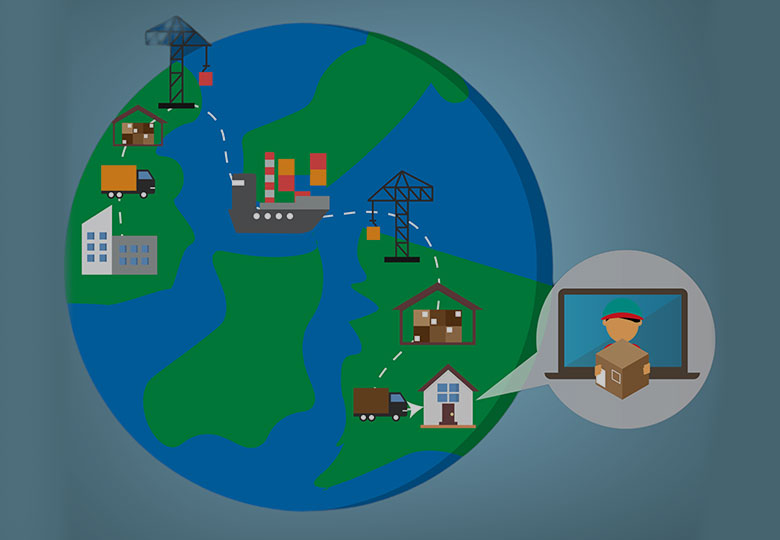Worldwide Shipping
In a global economy of increasing freight costs, disrupted supply chains, and expanding competition, both individuals and institutions are investing more of their time and energy into increasing operational efficiency. One of the greatest opportunities for growth is in shipping logistics optimization. That’s where we step in. With our multidisciplinary team, Sindbad is more than a partner who can bring together several areas of expertise and the know-how to help you meet your strategic shipping objectives and expectations while keeping costs low.
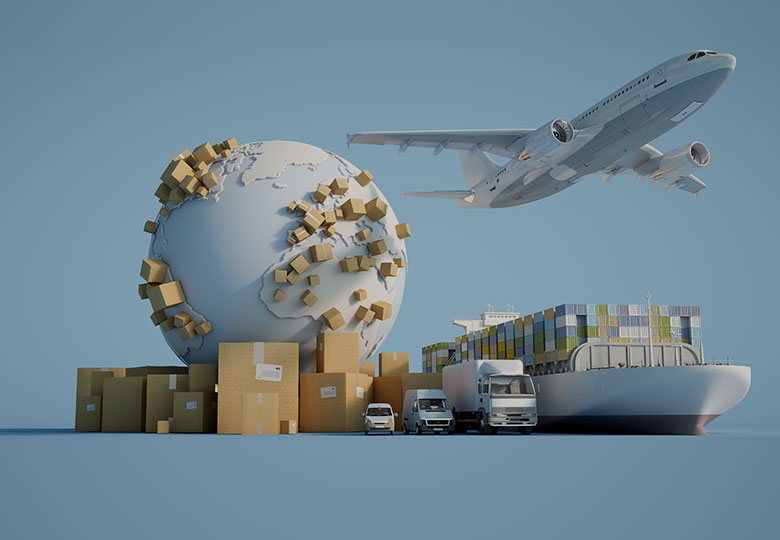

Express Door-To-Door
Our Express shipping is a special service offered by several carrier companies such as DHL, Aramex, FedEx...etc. to shorten the delivery time of an order, thus expediting the shipping process. You can use the express shipping service for orders that require urgent delivery. Also, the service is used when goods are classified as time critical and/or with an immediate deadline assigned with little prior notice. Express Shipping is usually the most expensive compared to the other modes of transport.
Air Freight
In this mode of transport, aircraft are used to transport goods. Air transport is undoubtedly a fast mode of transport and the most convenient form of shipping, it does not have to compete with many natural barriers. Our cooperation with well-known airline companies permitted us to offer competing optimal airfreight solutions both in time and price to all over the world. We can put together a secure and flexible solutions which meet our customers’ needs, whether it is a single shipment or a more complex solution. This advantage ultimately makes it the most accessible to all regions regardless of any land obstruction. Airfreight service can deliver most items, except dangerous or heavyweights.
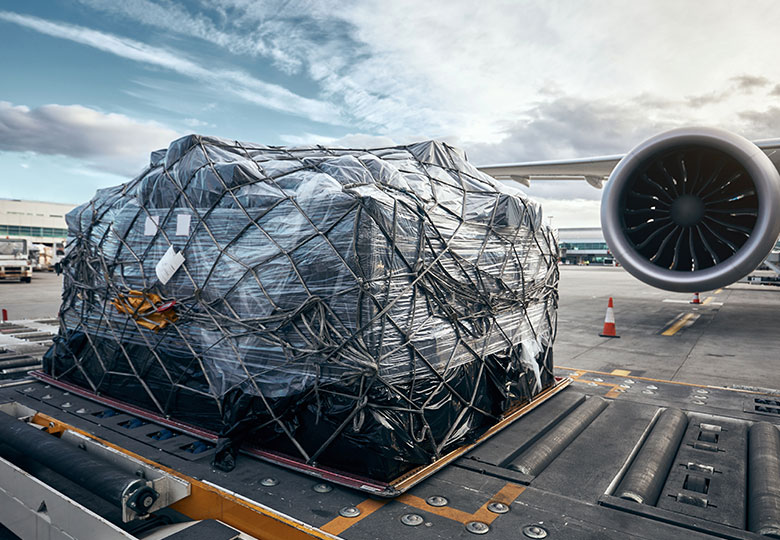

Ocean Freight
LCL, FCL, CIF, DDP
Shipping is to be done through the sea for various purposes such as industrial or commercial. It is the method used to transport comparatively larger quantities of products via cargo ships where goods are packed in containers and the containers are further loaded into a vessel;
LCL- Less than Container Load
Here's When You Should Book LCL
1. When your volume is under 10 CBM: LCL rates are based on weight and volume. It is cheaper to ship via LCL when your shipment’s volume is under 10 CBM → Lower shipping costs with LCL
2. When you want to book last-minute shipments during the shipping peak season: During periods of congestion, it’s easier to secure a spot with LCL shipping than FCL → Secure a spot with LCL shipping
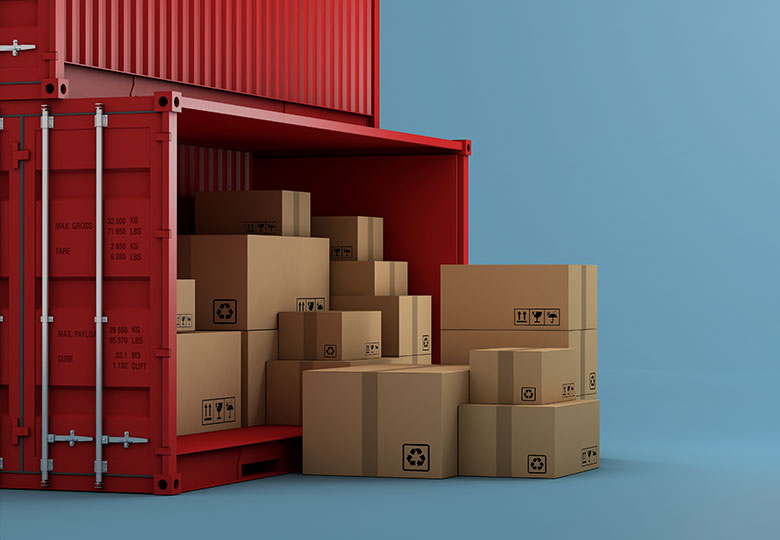
3. When cargo volume is too high for a full container and too low to fill two containers: The cheapest option would be to fill an FCL container and ship the remaining via LCL → Optimize both FCL and LCL costs
4. When the cargo isn’t urgent: While low-volume shipments can be transported via air freight, LCL shipping is a much cheaper alternative → Save money with LCL shipping
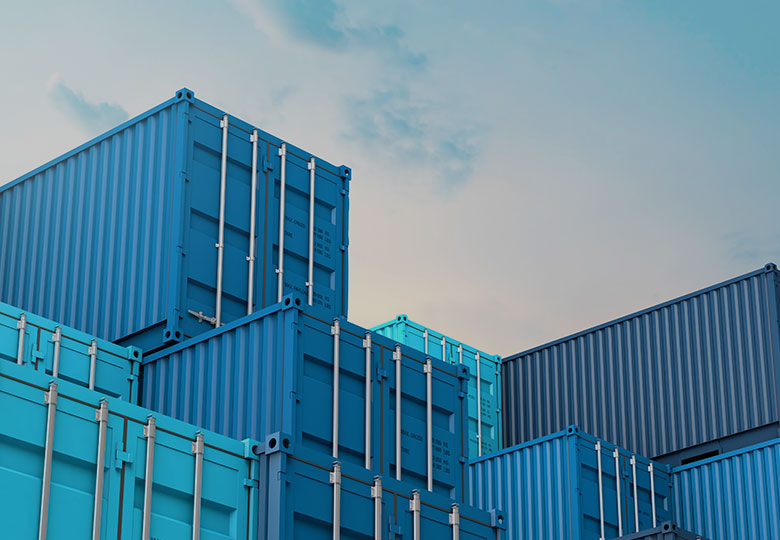
FCL- Full Container Load
Here's When You Should Book FCL
1. When you send more than 10 standard pallets or 13 CBM worth of merchandise: Goods above this volume may be shipped at a lower rate via FCL than LCL. → Optimize costs with an FCL shipment.
2. When you need your cargo to be secure: With FCL shipping, goods are not in contact with those of other shippers and have a lower risk of being damaged. → Protect your cargo with FCL shipping.
3. 3 When your shipment is urgent: Transit times for FCL shipments are shorter because they don’t go through as many hubs as LCL shipments do. → Fast-track your shipment with FCL shipping.
CIF- Cost, Insurance, and Freight CFR- Cost and Freight
What Does CIF Mean in Shipping Terms?
CIF is an international shipping agreement used when freight is shipped via sea or waterway. Under CIF, the seller is responsible for covering the costs, insurance, and freight of the buyer's shipment while in transit. The buyer is responsible for any costs once the freight has reached the buyer's destination port.
Who Pays CIF Freight?
The seller must pay for the costs of transferring and shipping the freight as well as insuring the cargo until the goods have been delivered to the buyer's port.

Does CIF Include Duty?
Duty charges for exporting the goods from the seller's port of destination are the responsibility of the seller. However, duty charges at the buyer's port of destination (import duties) are the responsibility of the buyer.
When Should I Use CIF?
CIF is only used when shipping goods via ocean or waterway, meaning CIF cannot be used for Air Freight. CIF can be easier for buyers who don't want to go through the trouble of obtaining insurance, paying freight charges, and assuming all the responsibility for shipping internationally. CIF is different from CFR, which is when the seller is responsible for the shipping and freight costs, but under CFR, the seller is not responsible for obtaining marine insurance.
DDP- Delivered Duty Paid
Delivered duty paid (DDP) shipping is a type of delivery where the seller takes responsibility for all risks and fees and should pay both export and import formalities, fees, duties and taxes of shipping goods until they reach to the buyer, so the responsibility is fully rest with the seller. The buyer is free of any risk or cost until the goods are unloaded from the vehicle at the named place of destination, usually the buyer’s place of business.
Buyers benefit heavily from DDP because they assume less risk, liability, and costs. Although DDP is a good deal for the buyer, it may be a big burden for the seller because it can quickly reduce profits if handled incorrectly.
